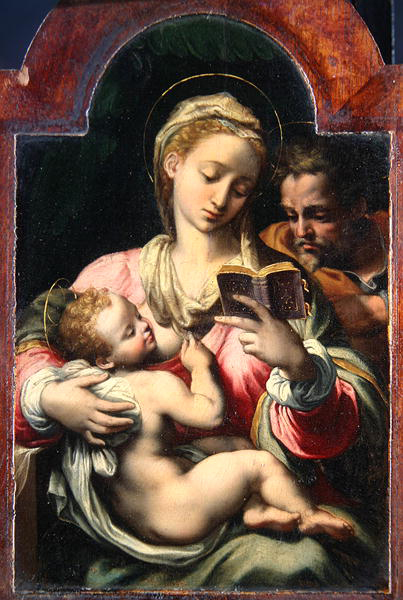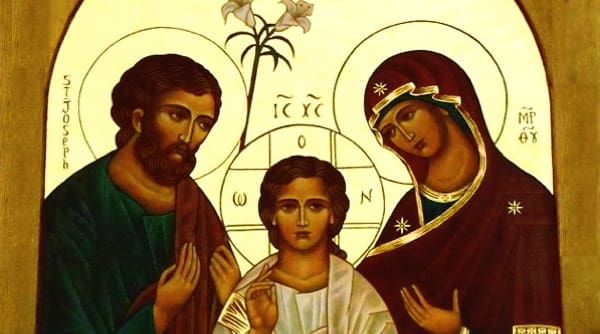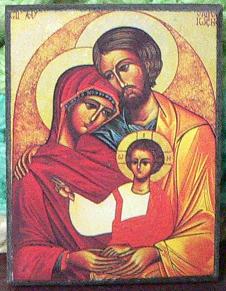It is Christmas Eve, the last day of Advent Season,
through which we have been preparing for the coming (adventus) of…..
Guess who is coming at an unknown hour by the time
we wake up tomorrow morning?
Santa Clause? Sure, if you are under a certain age
and nice. But, if you are naughty, then, no Santa to you.
Children are more preoccupied with Santa’s coming to
bring gifts to them by the time they wake up on Christmas morning.
This tradition of Santa Clause bringing gifts to
nice children while they are asleep from Christmas eve night into early
Christmas morning is based on St. Nicholas’ generosity to children in need. To
honor St. Nicholas’ wish, the tradition of Santa Clause emerged so that no
children would wake up on Christmas morning without a gift, even their families
are too poor to buy gifts or even they are orphans.
Now, those who are mature enough to be responsible
for children’s dream for gifts from Santa have been busy shopping the gifts
during Advent. They do not mind so much about spending time out of their own
busy schedule to shop Christmas gifts for children they care about. Many of
them enjoy being Santa to the children.
The tradition of Santa Claus for Christmas reminds
us that Christmas is about a gift. But, it is not a gift that many children
would hope to get from Santa. It is not a kind of gift nicely wrapped and
placed under Christmas tree. It was the gift that the Father in heaven has sent
to us, His beloved children.
This gift from the Father in heaven was first sent
to the Immaculate womb of Mary, the blessed virgin, betrothed to Joseph, the
righteous man by the power of the Holy Spirit (Luke 1:35; Matthew 1:18,20). The reception of this divine gift to Mary was
a total surprise when Angel Gabriel announced it to her but she accepted it
with humility (Luke 1:26-38). And, her acceptance of the gift from God led to
her joy as she dung in Magnificat canticle (Luke 1:46-55).
Let us not to forget that it was also Joseph, who
accepted this gift from God by accepting Mary as his legal wife, though he did
not want to marry a woman, who had been made pregnant by someone other than him
at first (Matthew 1:18-25).
Thus, through Mary and Joseph, we, too, have
received the greatest gift of all, Christ, who was first received in Mary’s
Immaculate womb, then, delivered to the world to fulfill Messianic prophecies
in the Old Testament, such as Isaiah 7:14.
Yes, children love the jolly Santa tradition
associated with nicely wrapped Christmas gifts to know that someone loves them.
But, let us not forget the real Christmas gift that the heavenly Father has
sent to us out of His love for us (John 3:16) by making the Logos-Theos in the human flesh of Jesus
(John 1:1, 14), with the power of the Holy Spirit affecting Mary (Luke 1:35;
Matthew 1:18,20) as Mary was full of grace (Luke 1:28, 30), she herself was the
Immaculate Conception, being conceived in her mother’s womb without any trace
of the Original Sin (Infafabilis Deus).
This divine gift, the Christ, was received first by
Mary and then by Joseph, her chaste husband, because both of them were open to
God’s will. So, Mary opened her heart and womb to receive Christ as the
ultimate gift for us, as our Mother. Then, Joseph received Christ in Mary’s
womb as he accepted her as his legal wife. This way, Christ, heavenly Father’s
greatest gift to us, legally has the Davidic royal lineage with the Abrahamic
ancestry (Matthew 1:1-17).
On this Christmas eve, first and foremost, our
hearts goes out to the Father in heaven, with heartfelt gratitude, for sending
us this greatest gift in the human history, Jesus the Christ, with the Davidic
royal line, to be our King of the universe, and with the eternal order of Melchizedek
(Hebrews 7:11-25; Psalm 110:4 ), to be our High Priest.
Of course, we are
grateful to Mary, who humbly accepted God’s invitation to receive this divine
gift first as the Theotokos and also
as the Mother to us. Not to mention, we thank Joseph for marrying to Mary, who
was already pregnant with this gift in her womb, to give Christ the Davidic
legal lineage, and provide all the necessities for the gift to grow into the
maturity to bring us the good tidings for our salvation.
So, where do we fit into this Christmas tradition of
gift-giving and gift-receiving?
The Santa tradition is just a metaphor was a step
into appreciating how loving the Father in heaven has been. As Santa loves good
children, the heavenly Father loves us far more than Santa loves children. That
is why the gift from the Father in heaven on Christmas is priceless and given
to all those who accept him with gratitude and joy.
On this Christmas Eve, are we ready to receive and
fully accept this divine gift from the Father in heaven with our open heart? It
is this gift from the heavenly Father, who has been coming, and whose coming that
we have been preparing throughout the Advent Season. For this, we have recalled the words of John
the Baptist, citing Isaiah 40:3, making a straight high way for the Lord’s
coming (Matthew 3:3//Mark 1:3//Luke 3:4), as we have heard on the Second Sunday
of Advent.
When the world received this gift, Jesus Christ, he
was not so welcomed. In fact, when Mary and Joseph were desperately looking for
a nice place to deliver this gift from the heavenly Father, they were declined
to have a room in an inn. So, they had to deliver this gift in a stable and
wrapped him with swaddling clothes to place in a manger. It was far from a warm
and comfortable crib for a newborn baby gift.
Let us make sure that our hearts are much better
than the manger in the stable, where Jesus the greatest gift was first received
by the world.
Are our hearts warm and comfortable for the greatest
gift to be received as he comes?
Do our hearts have enough love to wrap this gift?
If our answers to these question are yes without
hesitation, then, we must be ready for Christmas.
Let us also remember that Christ is the first gift from our heavenly Father, delivered to us through the cooperation of Mary and Joseph as our Parakletos (1 Johm 2:1). We have also received another gift of Parakletos, the Holy Spirit (John 14:16, 26), on Pentecost, also from the Father in heaven, in the name of Christ the gift.
May our hearts be like these of Mary and Joseph, who
have accepted this divine gift first with their open, humble, and loving heart,
so that we, too, can receive Jesus Christ, this gift. Amen.
Merry Christmas!







